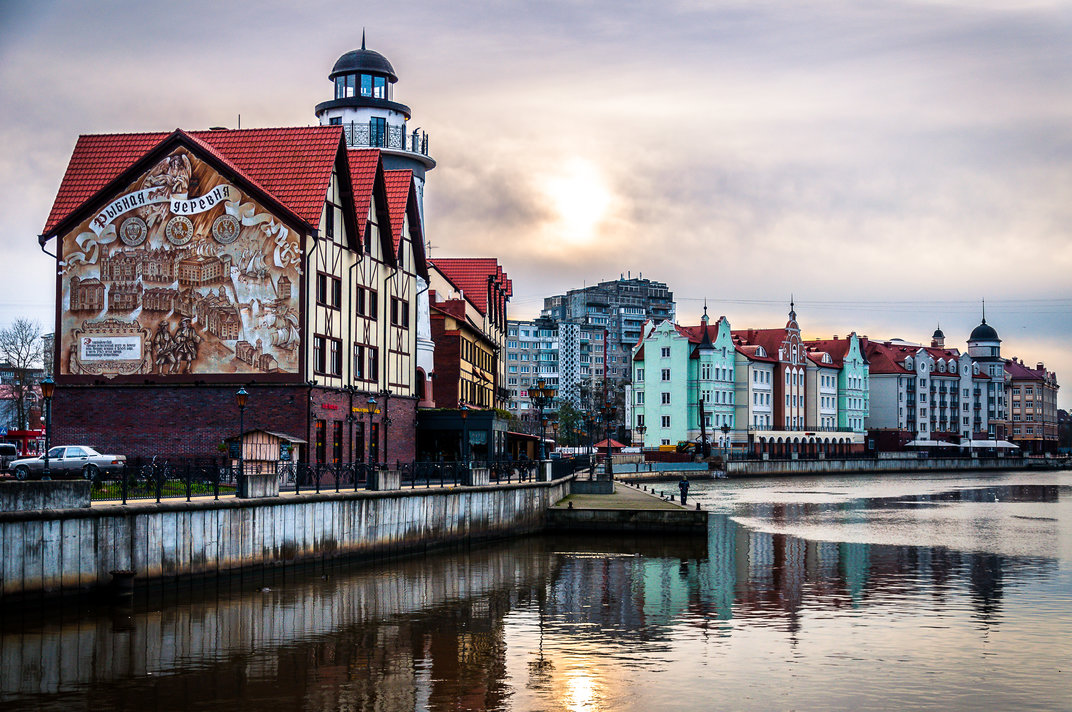Königsberg is no longer
This article originally appeared in “Meanwhile in the Baltics…“, a collection of articles written by the graduates of 2016 Solidarity Academy – Baltic Sea Youth Dialogue, organised by the European Solidarity Centre in partnership with the Council of the Baltic Sea States.
May 11, 2017 -
Dorian Jędrasiewicz
-
Articles and Commentary

Only 50 kilometres from the northern border of Poland one finds a different reality. A small world, where one is welcomed by a border guard in a typical chapka and where during the day the doleful greyness of post-socialist buildings cuts through the kilometres of lopsided pavements, on which street trade blossoms. A two-hour trip from Gdańsk to the Kaliningrad Oblast, like a time machine, lets one go back to the Cold War era.
From the charcoal block districts the remnants of German architecture resurface like snowdrops. Immanuel Kant guards Russian free thinking. It is a world of little absurdities; a world which at night completely changes its mien. Kaliningrad in the evening blossoms almost like an ugly duckling, thanks to the ever-present neon lamps casting their pale light over asphalt ribbands. The lives of the inhabitants and the unbridled street traffic are overseen by the vigilant eye of the concrete robot, the House of Soviets, built on the place of the Prussian castle destroyed in the 1960s.
Rusty trolley-buses and streetcars scurry through the streets, tightly incubating the breath of the inhabitants, who can be spotted through the steamy windows. Not knowing the
facts, one feels as though one is in a multi-million metropolis. A metropolis which suffers from a peculiar schizophrenia, unsure if it should keep pace with the urban McDonalidisation or welcome travellers with its nostalgic climate, traditional ukha and the sign on the Kaliningrad hotel towering over downtown. It is a place where one can observe the “Goodbye Lenin!” live. With one exception – no wall will collapse here.
Translated by Agnieszka Pikulicka-Wilczewska

The House of Soviets (the intended headquarters of district administration), built on the place of the Teutonic castle which was destroyed at the behest ofLeonid Brezhnev.

The inhabitants are connected with each other, just like they are with their local motherland.

A souvenir shop nearby the Cathedral.

Afternoon rush hours, Kaliningrad inhabitants are returning home from work.

Kaliningrad is full of Soviet architecture.
Dorian Jędrasiewicz is a master student in the Institute of European Studies at the Jagiellonian University in Krakow. He is a vice-president of the German studies university circle.

































